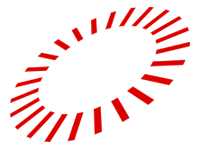If you’re working at the frontiers of knowledge, timing is everything …
You can have great ideas, brilliant people and all the funding you need, but if you’re too far ahead of your time, the project won’t give you the pay-off you seek.
Epigenetics, quantum biology, psychoneuroimmunology and computational cosmology are just some of the scientific fields taking off in the 21st century, but they have all at some time in the past been championed by people now lost to history.
The burden of bad timing is sometimes hard to bear: in science it has resulted in lost fortunes, public opprobrium, irredeemably tarnished reputations, depression and even suicide. Get your timing right, though, and the prize can be immortality.
So, how do you survive the dangers of working at the edge of uncertainty?
As we continue with our ‘Charting Extraordinary Futures’ series of talks, discussions and debates, Michael Brooks, author of the forthcoming “At The Edge of Uncertainty: 11 Discoveries Taking Science By Surprise” looks for the answers offered in his new survey of the modern scientific endeavour.
Join us to look beyond the edge of uncertainty, to stretch your thinking, to extend your network and to ask very difficult questions at the Real Time Club dinner on Tuesday 24th June 2014.
“Michael Brooks is the canniest science writer around. He writes, above all, with attitude.” – The Independent
Michael Brooks, who holds a PhD in quantum physics, is an author, journalist and broadcaster. He is a consultant at New Scientist, a magazine with over three quarters of a million readers worldwide, has a weekly column for the New Statesman and is a Huffington Post UK blogger. He is the author of ‘Free Radicals: The Secret Anarchy of Science’ and the bestselling non-fiction title ‘13 Things That Don’t Make Sense’.
His writing has also appeared in the Guardian, the Independent, the Observer, the Times Higher Education, the Philadelphia Inquirer and many other newspapers and magazines. He has lectured at various places, including New York University, The American Museum of Natural History and Cambridge University.
